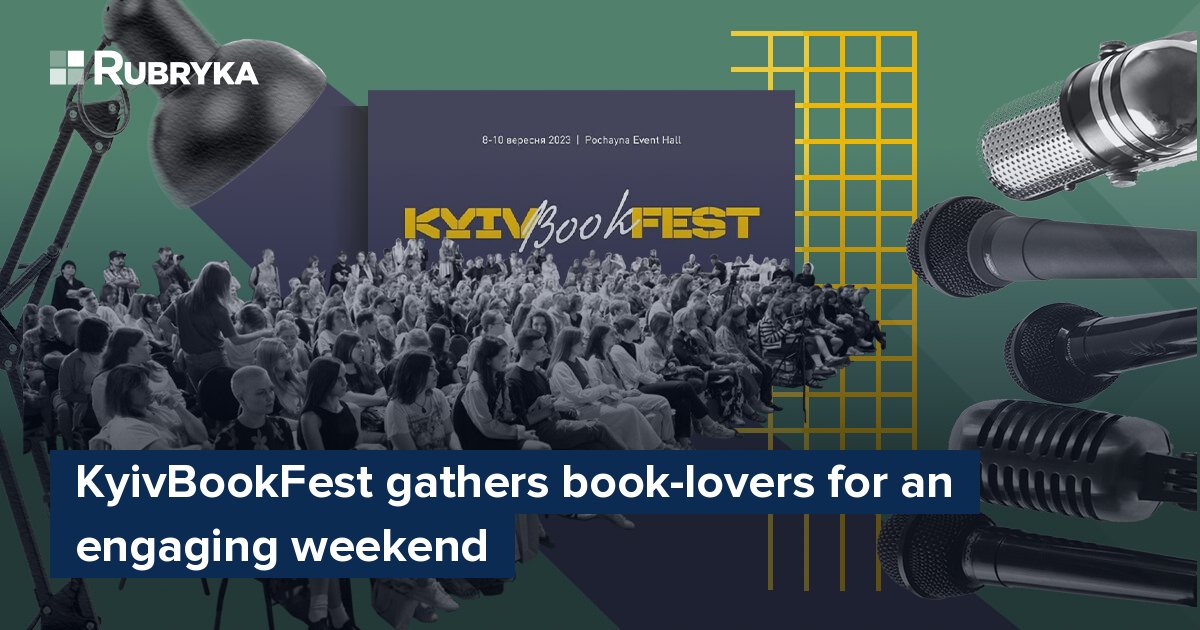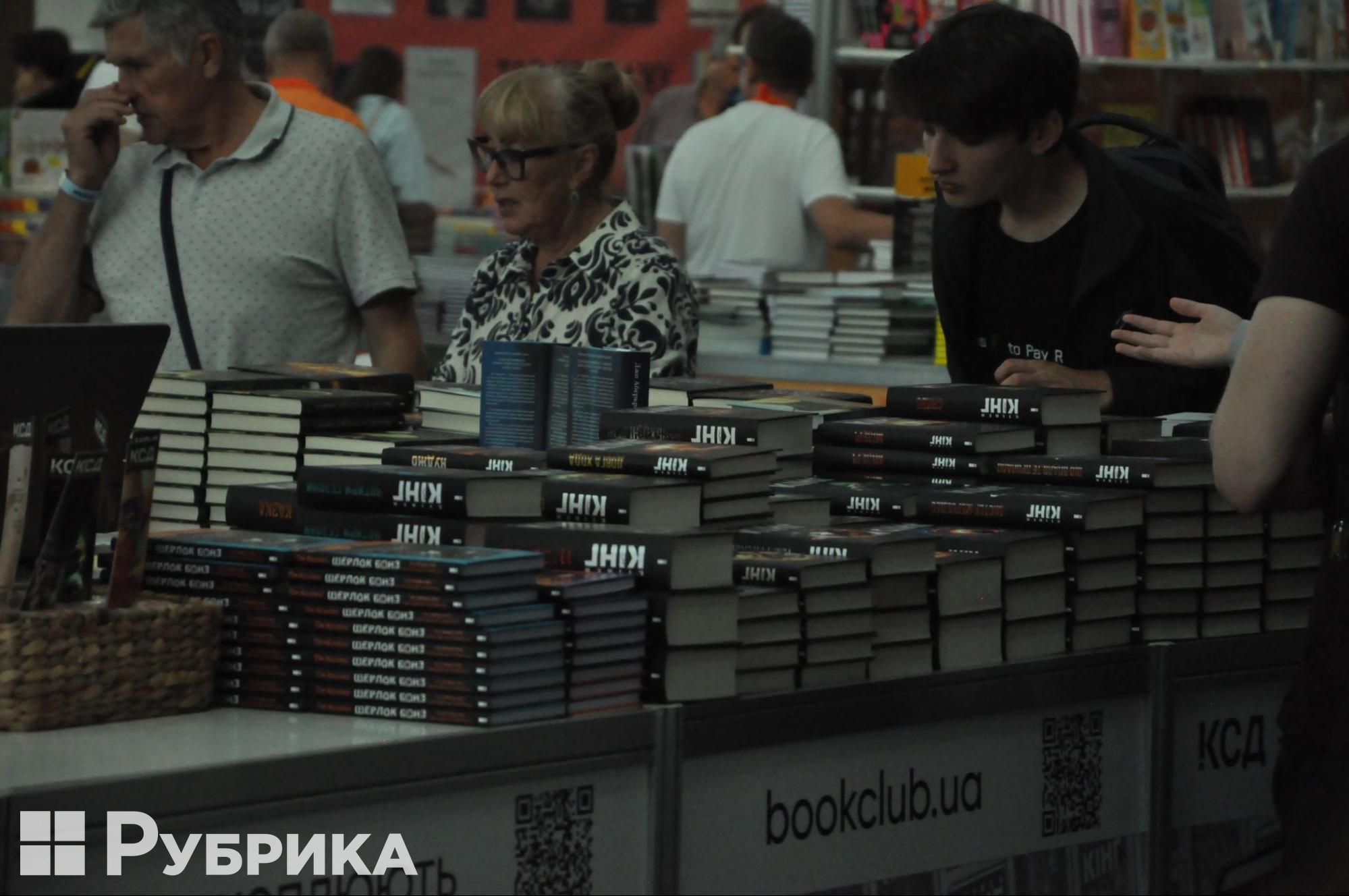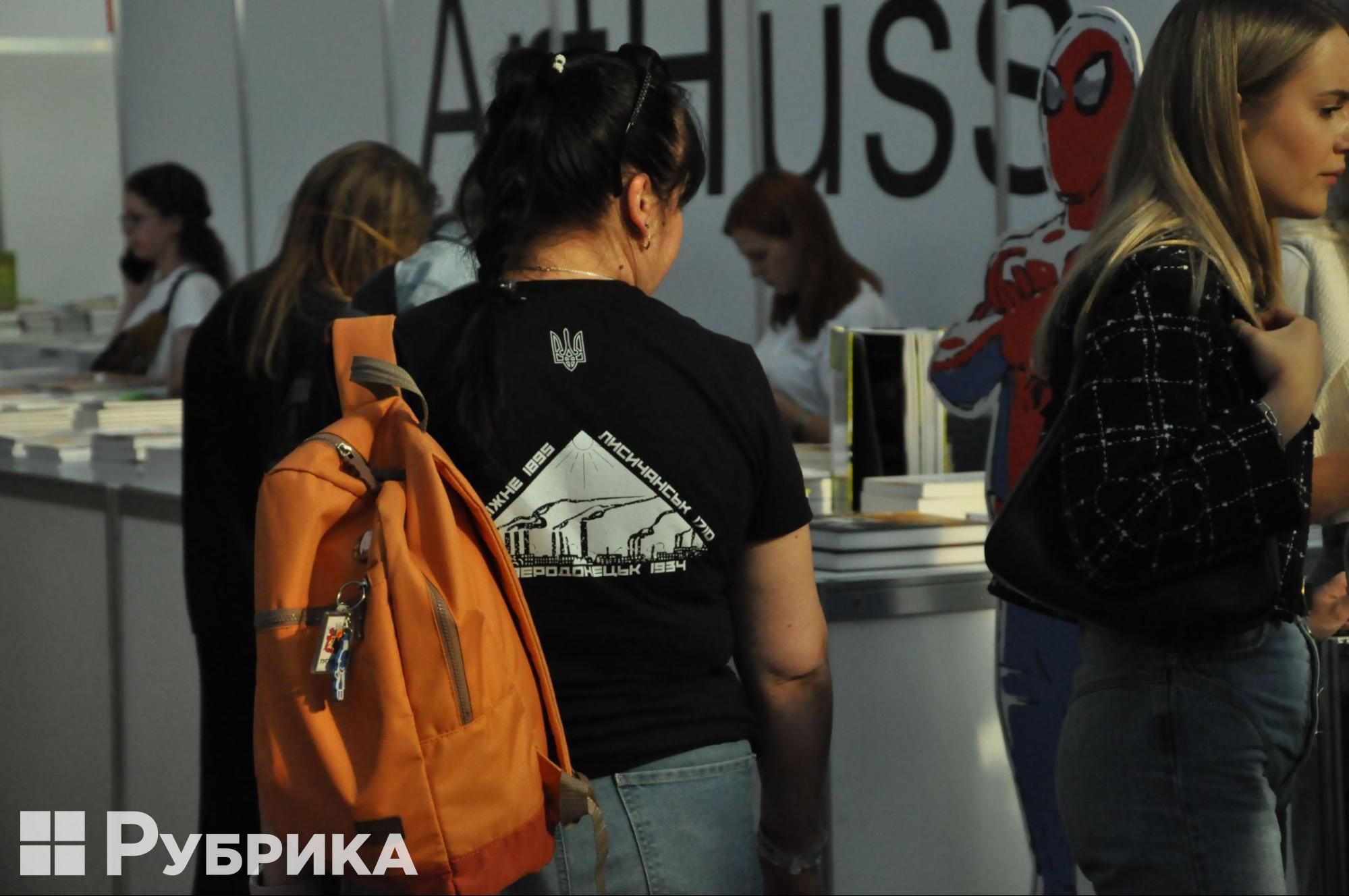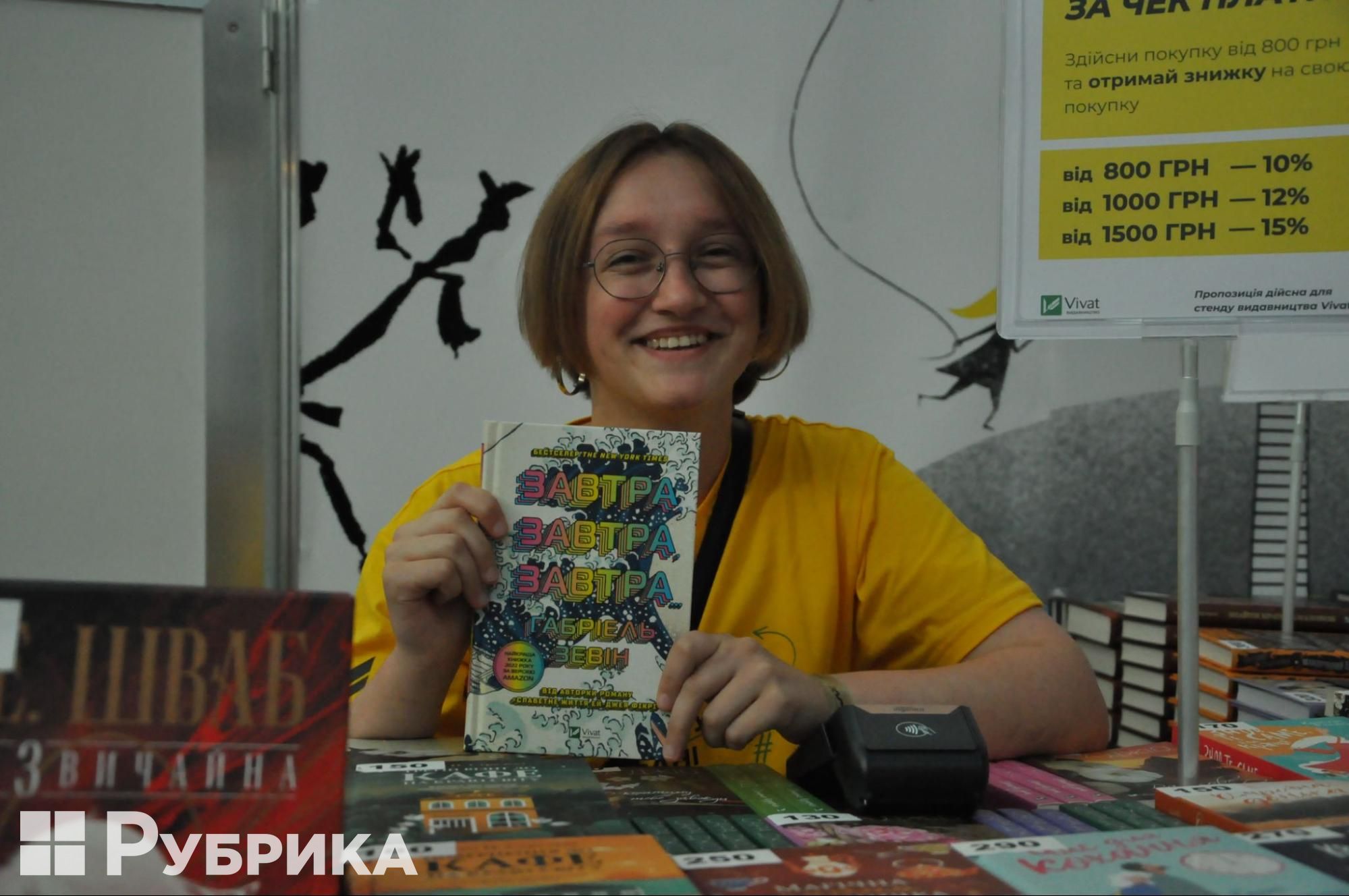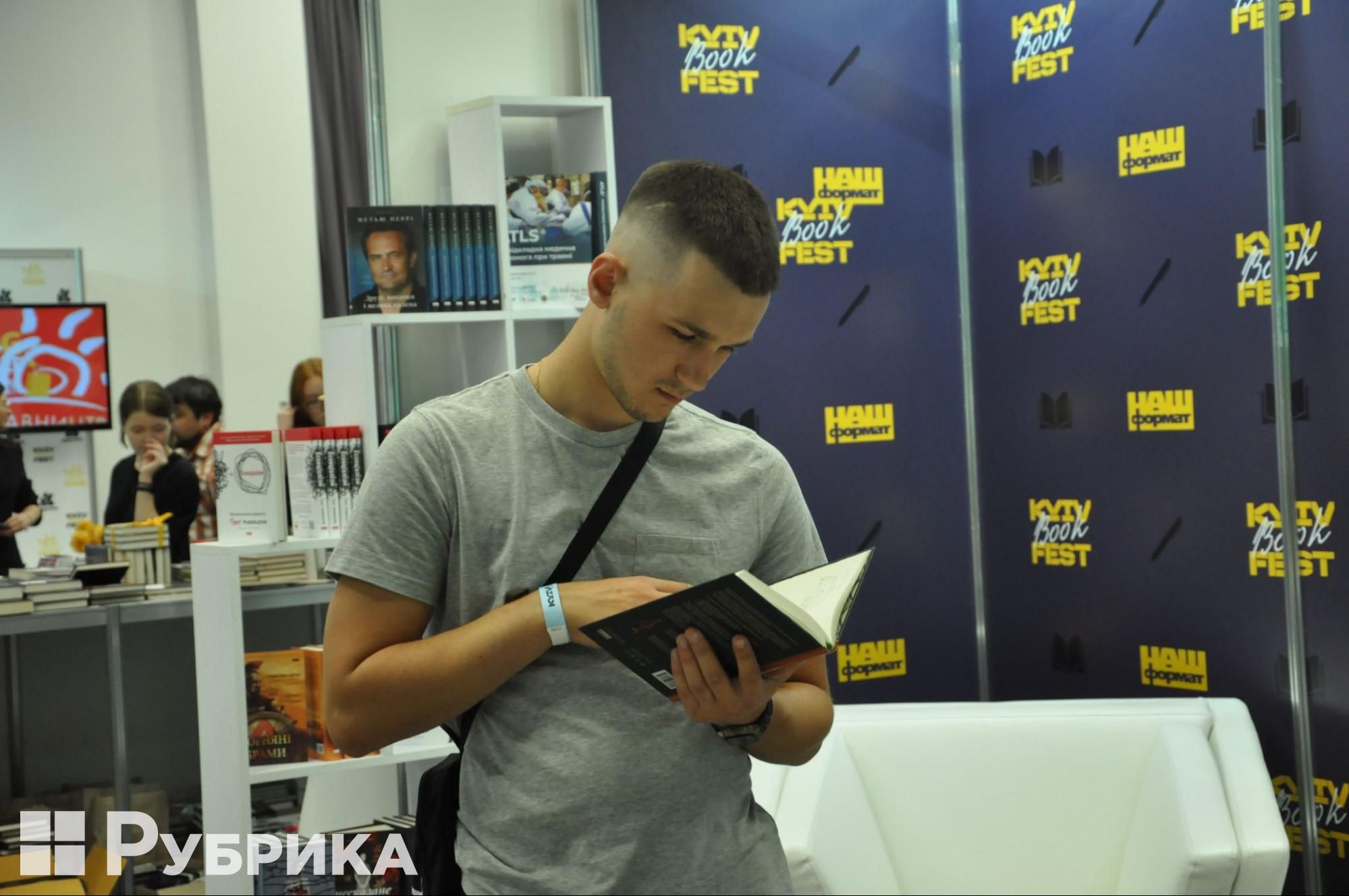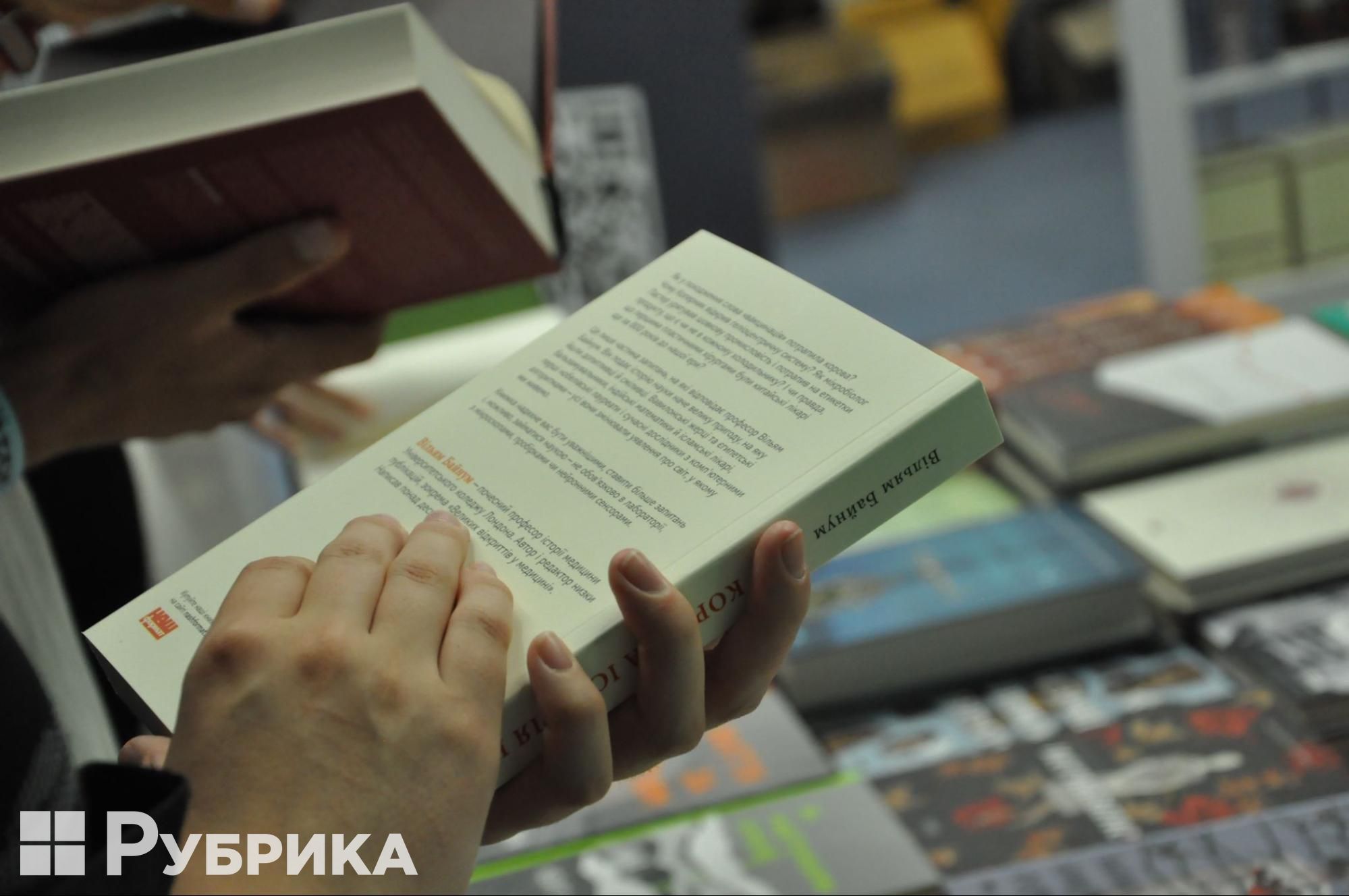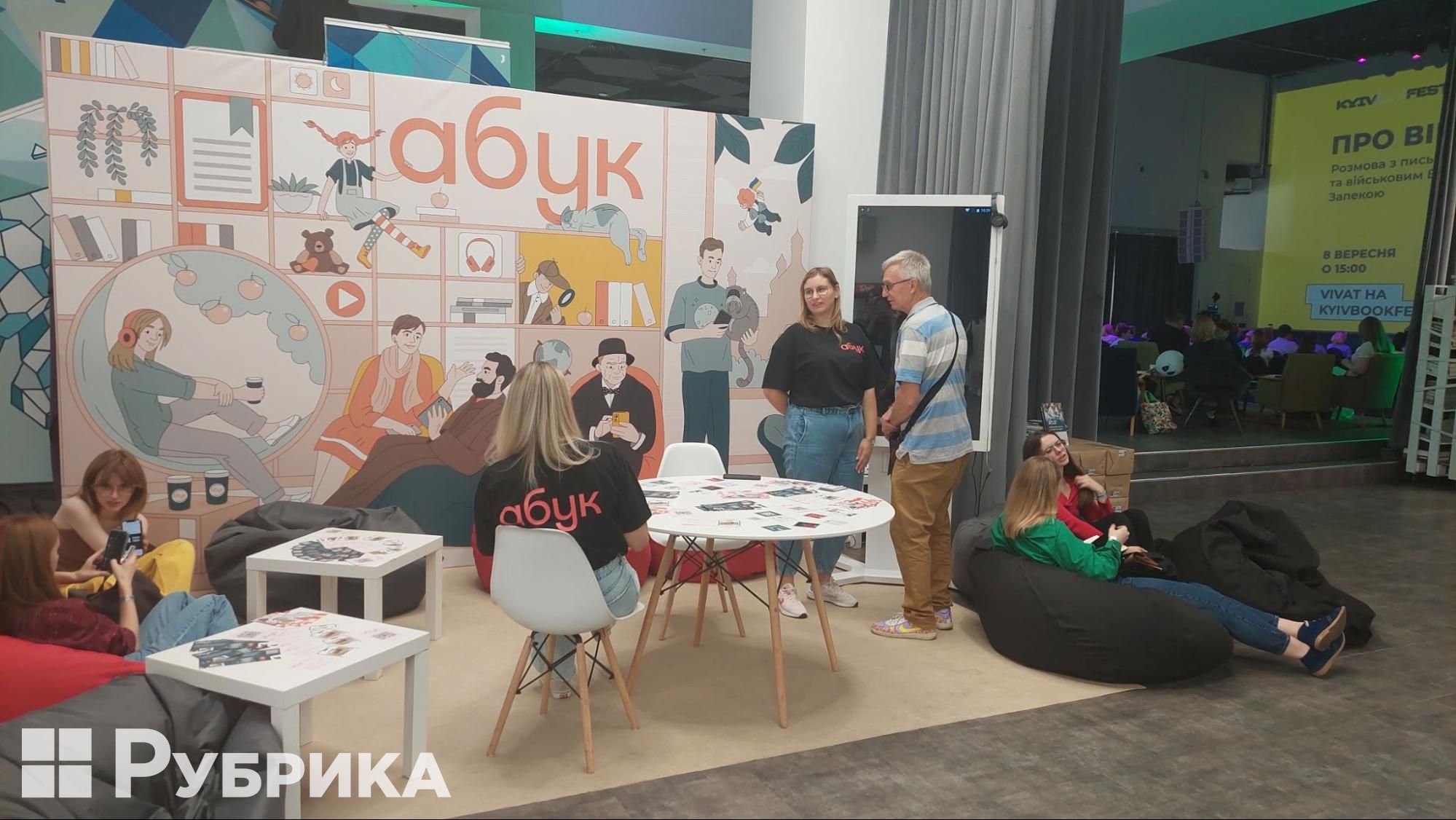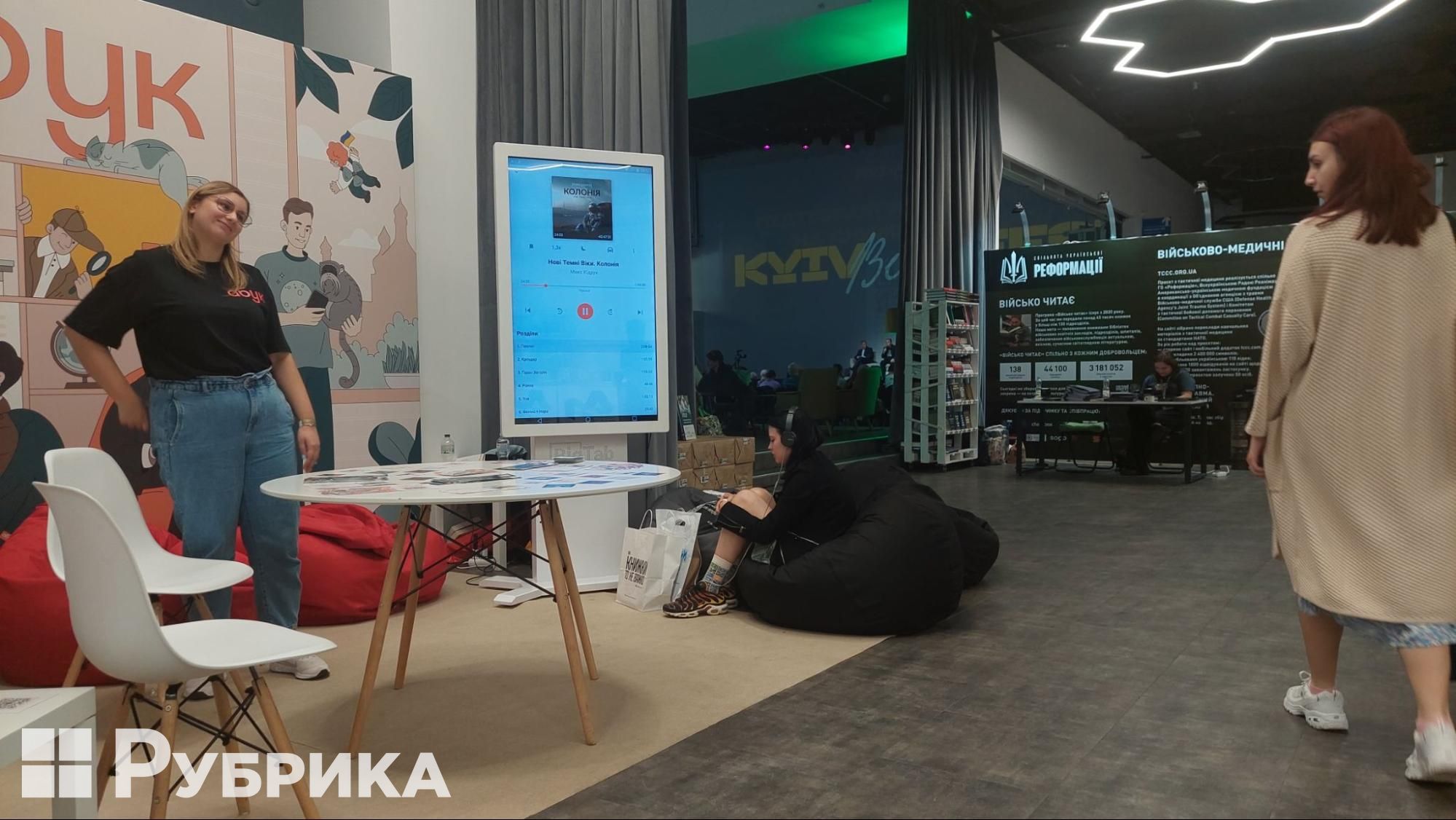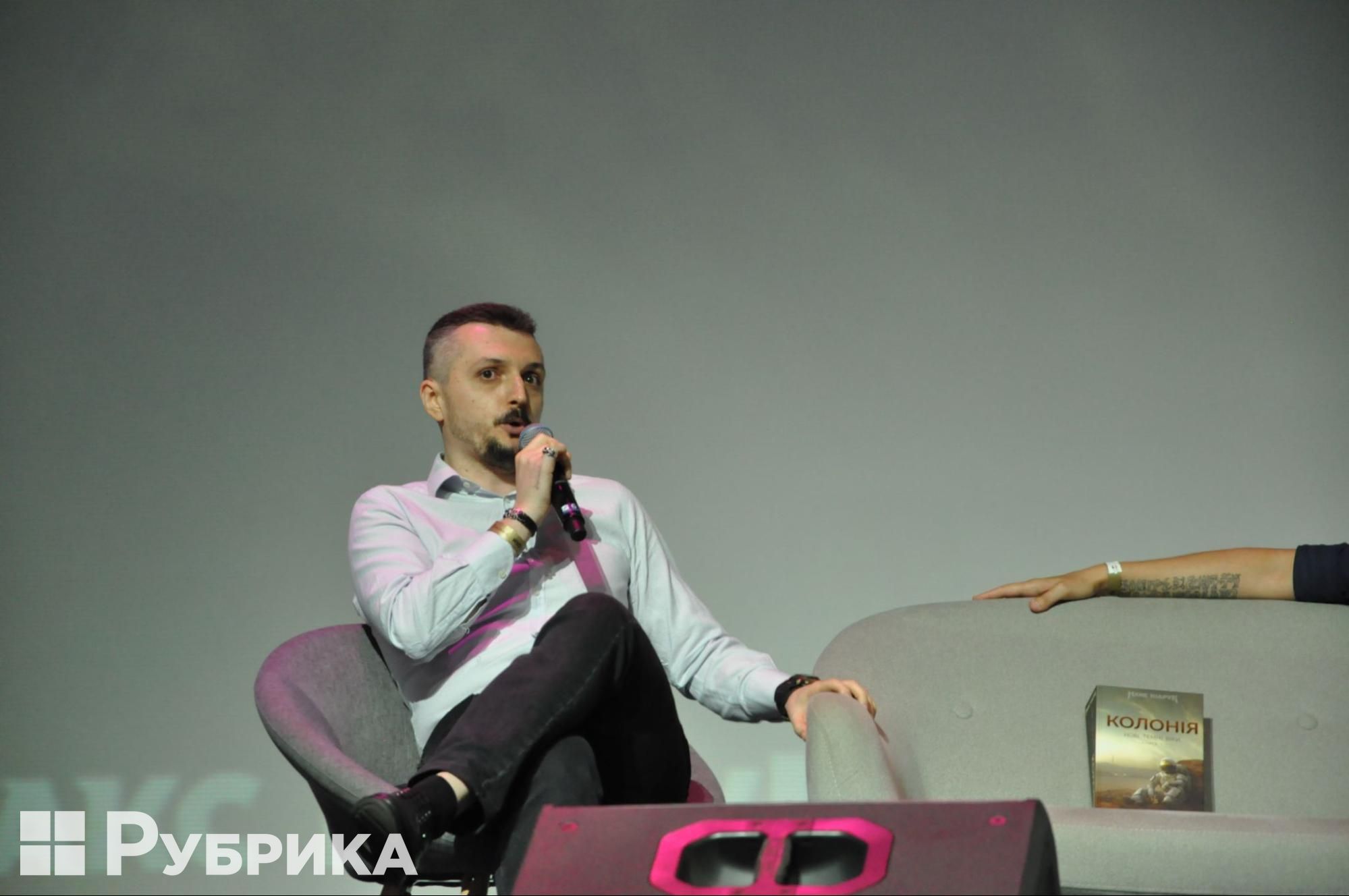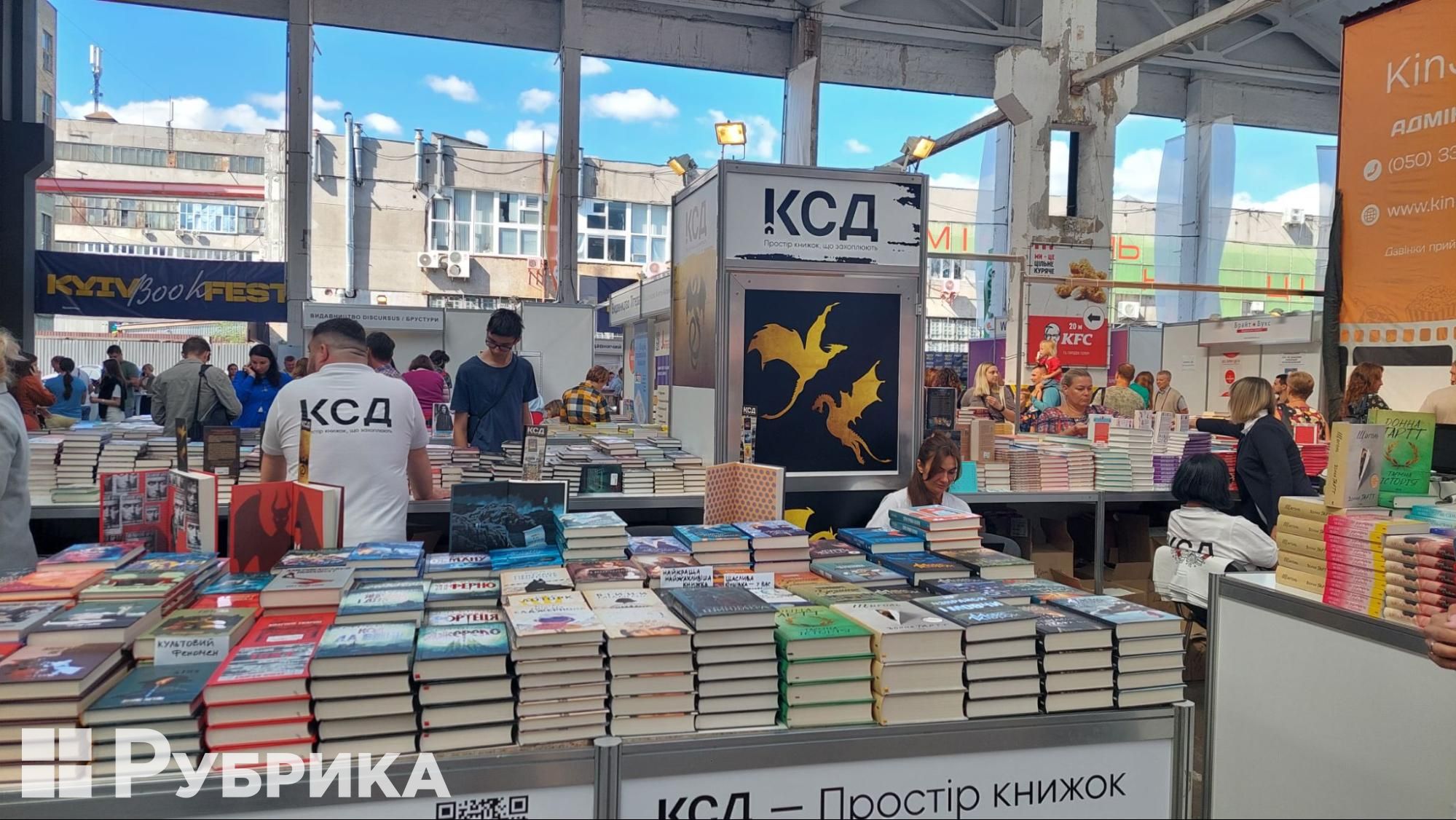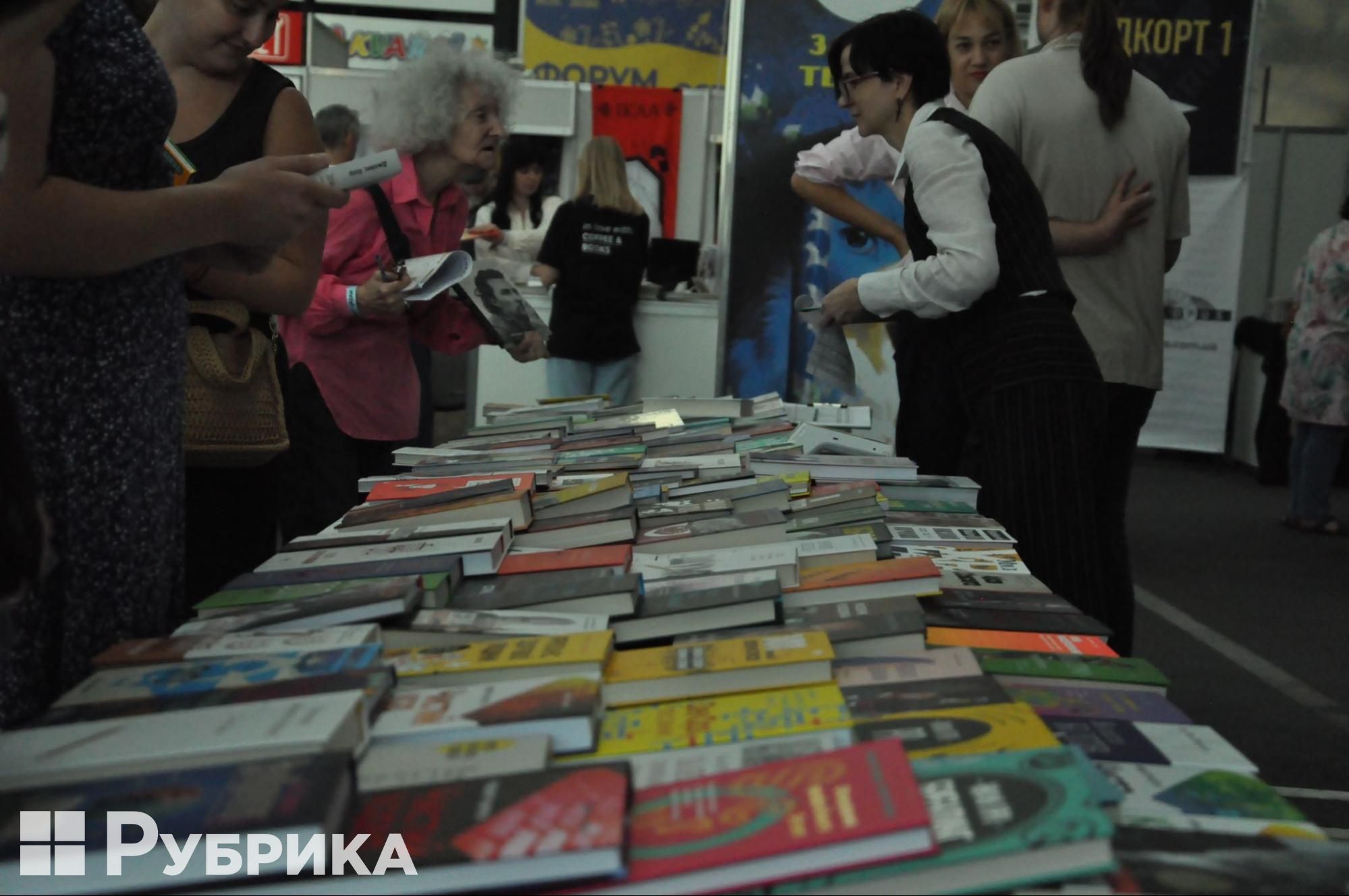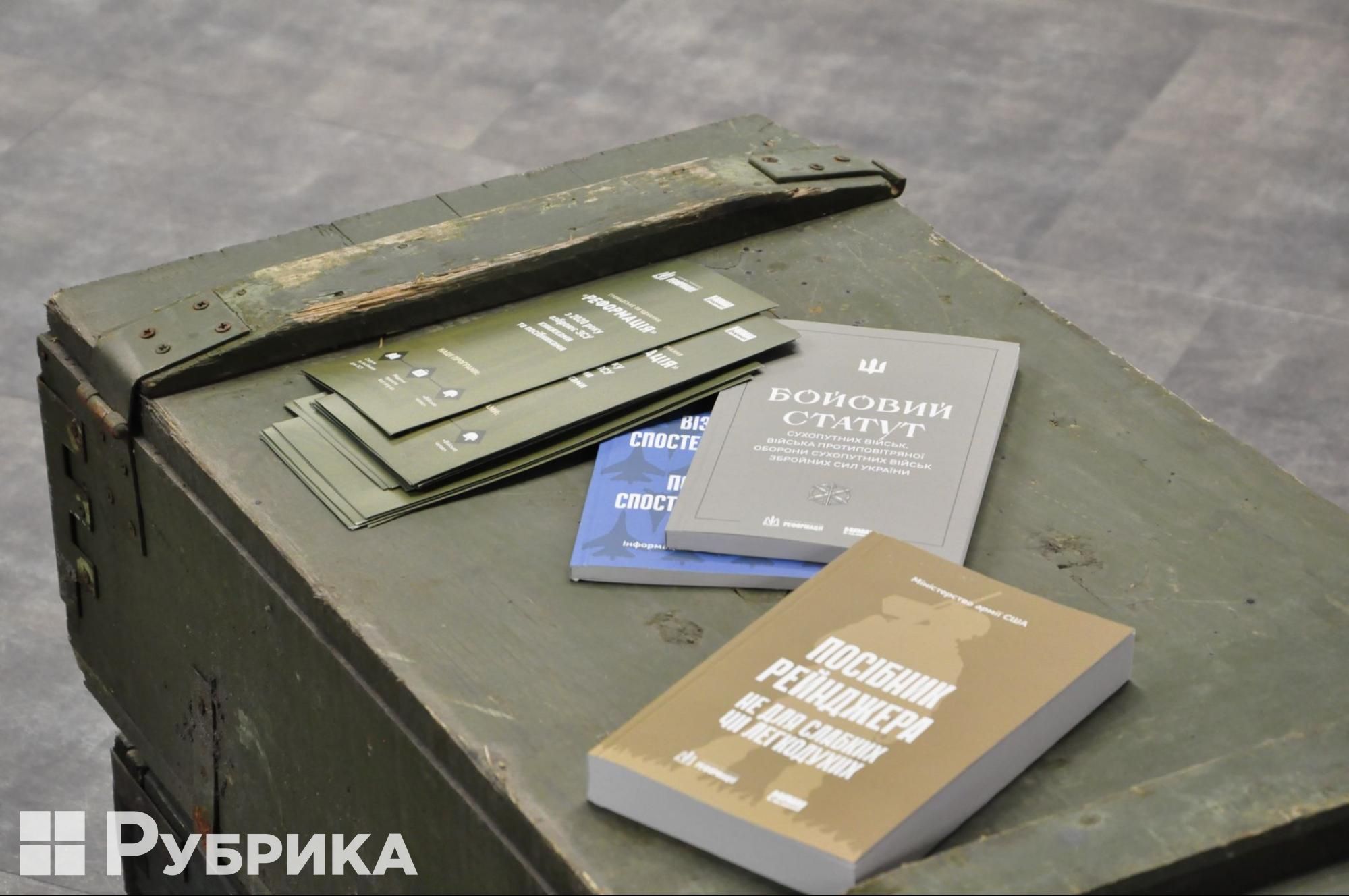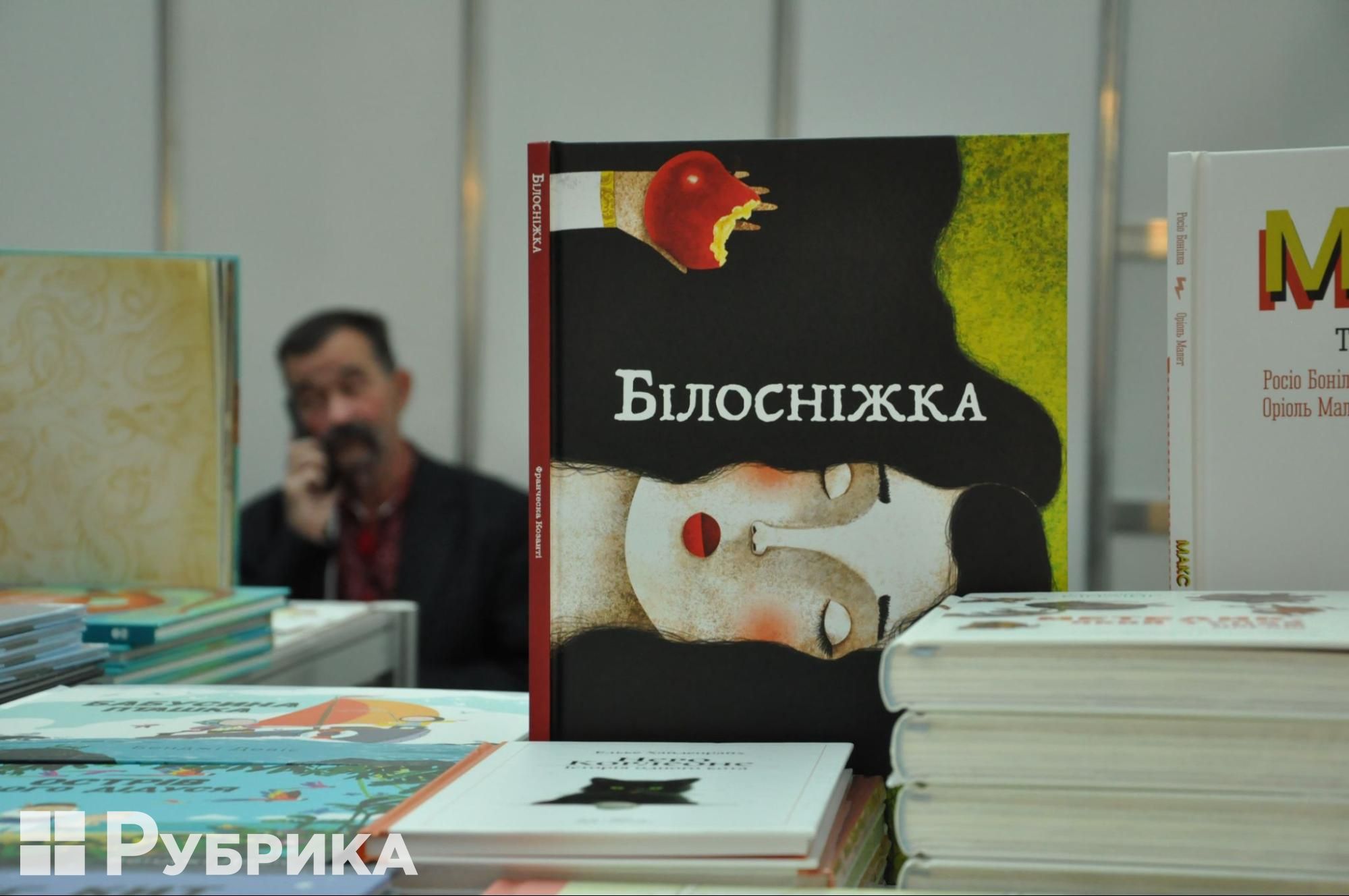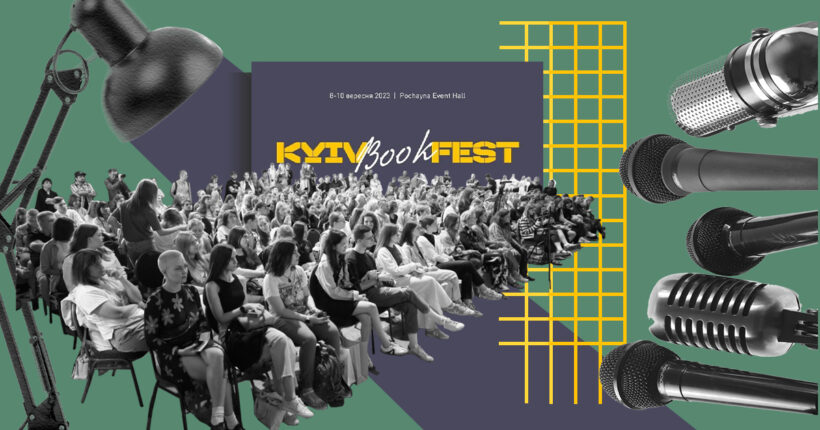
Friday is a smooth start

Volunteers are ready to work. Photo: Valentyn Kuzan
The morning of a volunteer at Gorodok Gallery does not begin with coffee but with an overview of completed locations. A few days before the opening, the team was shown where the books would be sold — a fair with free entry, and where the industry forum would take place — a location with donation entry. However, the day before, everyone saw only half-finished stages and empty stands on which the builders were working. On Friday morning, everything was already perfect: the workers set up the lights and the chairs, the publishing houses decorated their corners with bright posters, and the smiling consultants laid out the books and waited for the first visitors.
One of the tasks of a volunteer at the festival is to monitor the stage: whether the speakers have arrived, whether there are enough chairs, whether there is water, whether the microphones are working, and whether the guests have found the location. Everyone is hustling. These are the first events at the first KyivBookFest.

In the morning, the hall was empty, but not for long. Photo: Sofia Korotunenko
While waiting for the speakers, volunteers and organizers are anxious they will not come. Finally, everything is ready, and the participants are in their seats and ready to speak. Hall B1 awaits "The Story of the Courage of Ukrainian Women in the War with the Russian Invaders." The problem with morning events, especially on a working day, is the small number of listeners. There are about 60 guests on large stages and in smaller halls — up to 20. Only women sit in the hall B1, and the main thesis of the panel is "Women's leadership is completely different from men's leadership."

Speakers of the panel "The Story of the Courage of Ukrainian Women in the War with the Russian Invaders." Photo: Valentyn Kuzan
Military journalist Iryna Sampan shares: "An interview with a female soldier is always more difficult than a male interview. Military women do not like to say about themselves, 'I'm cool, I'm in my position and my place.' Women in the army seem to still have to explain what they are doing here and why they are here. Who are you if you don't care about your child or family? The situation is different for men."
The feminist mood is in the air: when the speakers share their experiences, several female listeners nod in silent agreement. The event ends with applause and words of gratitude to the participants.
The peculiarity of the festival is the absence of barriers between the audience and the storytellers. After each event, guests can chat with the speakers, ask them questions, and discuss the book. This can be felt especially strongly in the next panel, where they will talk about the relevance of the nationalist heritage. Tetiana Oliynyk has read all the books of the Ukrainian Publishing House and repeatedly contacted the representatives on social networks to discuss them. One of the speakers, Viktor Rog, recognizes her and introduces her to the audience. She smiles and puts her hands to her chest, thanking Rog. At the end of the meeting, when there is time left, she expresses her thanks: "Your literature moves the youth."
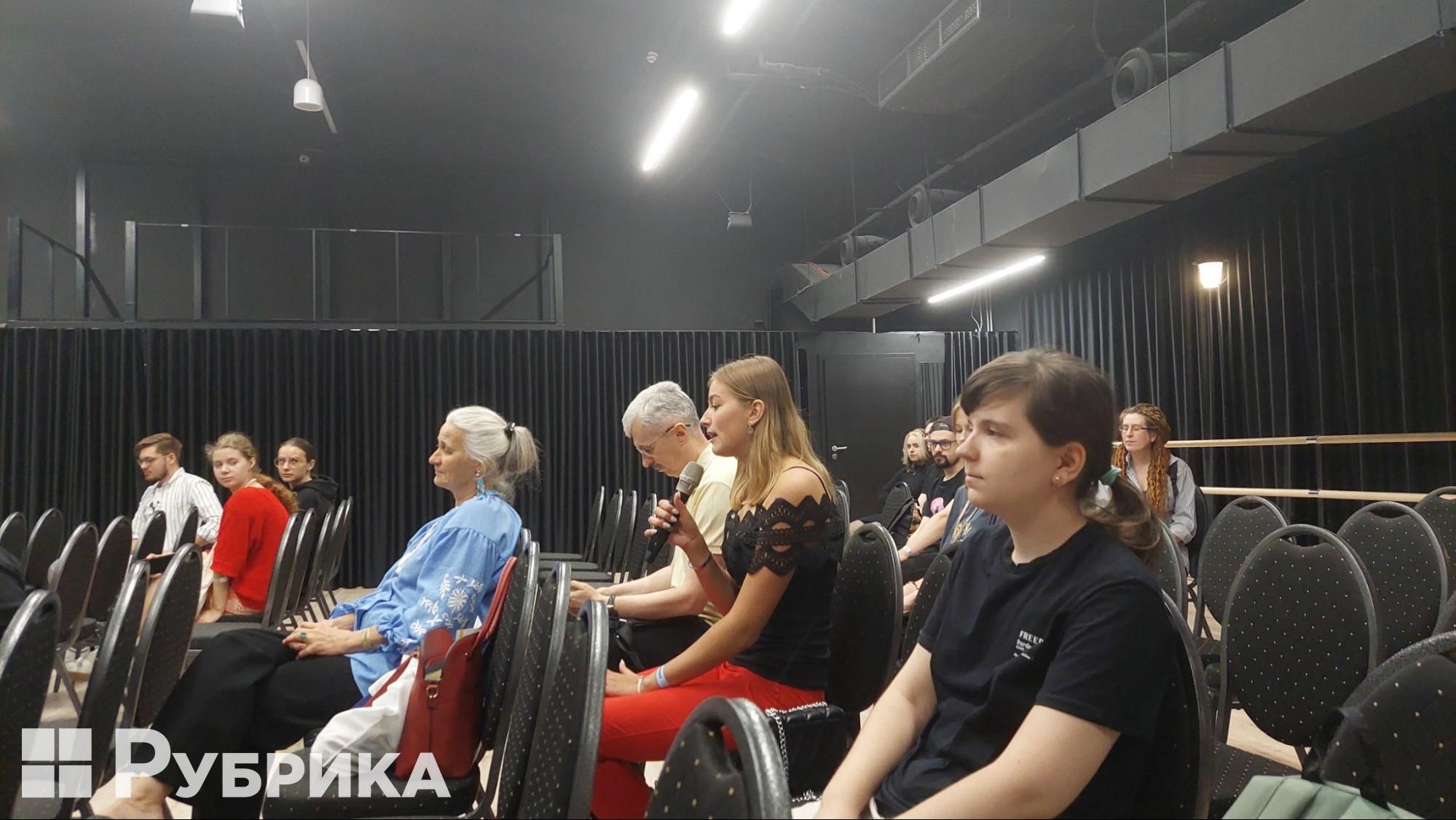
Oliynyk expresses her thanks. Photo: Sofia Korotunenko
Lunch is brought in the afternoon. After a cozy, cool hall, isolated from the festival's noise, it is very unusual to find yourself in a noisy vortex of visitors. While passing through the crowd, I direct people to locations several times:
— Could you tell me where the genre location is?
— Do you see the "A-BA-BA-HA-LA-MA-GA" stand? Behind it, turn right.
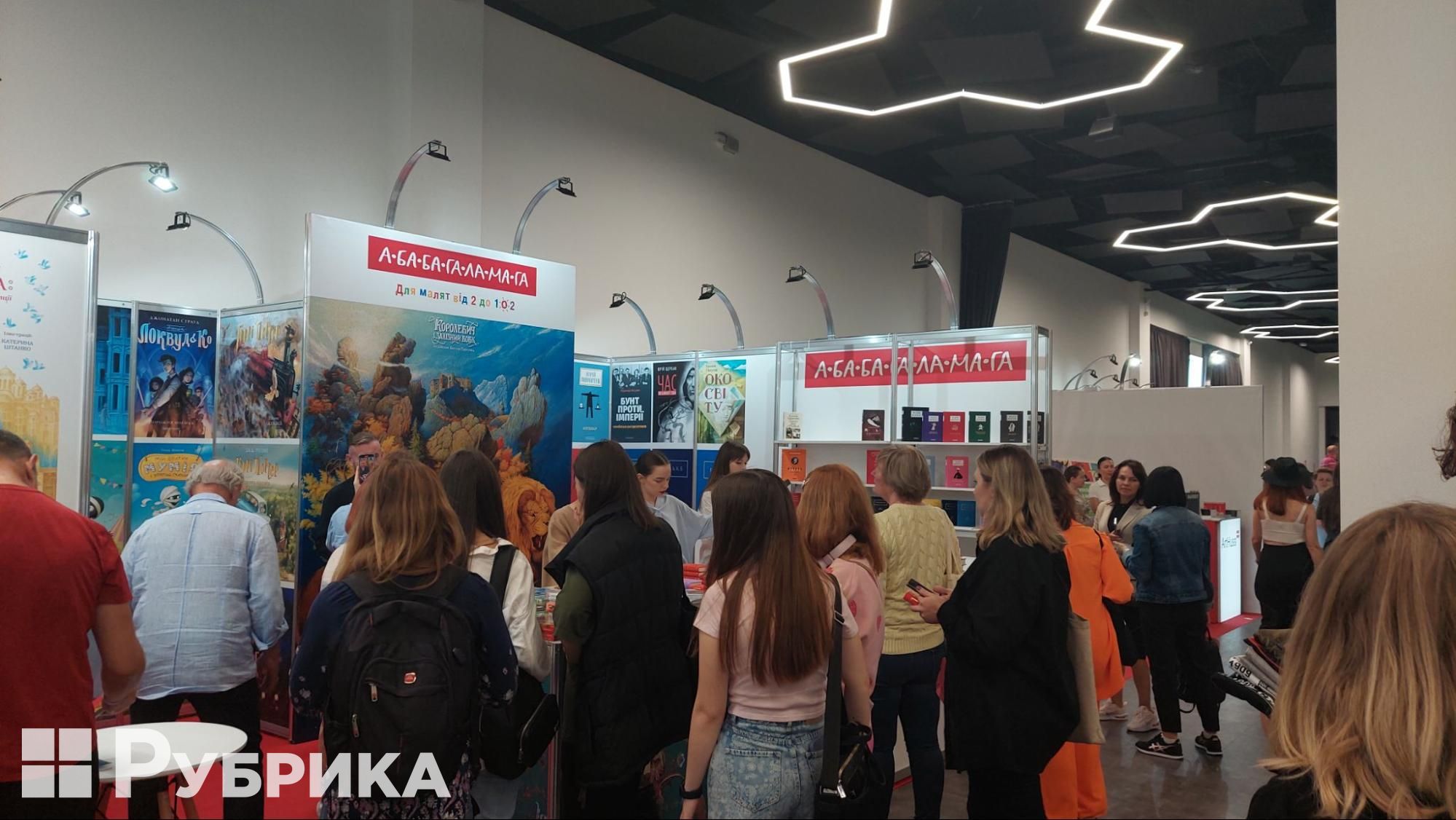
Stand of the A-BA-BA-HA-LA-MA-GA publishing house. Photo: Sofia Korotunenko
A little later, after lunch, a crowd had already gathered in front of the escalator that serves as the entrance to the event. While I wait for my chance to return to the third floor, where almost all the events take place, I talk to the security guard Konstantin Halytskyi:
"I did not expect to see such famous people here as Mykola Tomenko — Ukrainian politician and public figure. I'm impressed by the audience — everyone is intelligent and well-dressed. It's good that we learned to work and hold festivals even in such difficult times — during the war."
At 5:00 p.m., there is a full house. Guests are waiting for the discussion "Cultural Liberation of Ukrainian Territories." Acting Minister of Culture Rostyslav Karandeev and Commissioner for the Protection of the Ukrainian Language Taras Kremin must visit.
Main extracts:
- Ukrainian books should replace Russian books to "liberate" the library shelves.
- The book is armor and a weapon, especially when it is read by people who have not had the opportunity to get acquainted with the Ukrainian word.
- The educational and cultural processes must be brought closer to each other because for a person to come to the library, they must be enlightened and guided by educators and teachers.

"Cultural liberation of Ukrainian territories." Photo: Sofia Korotunenko
The audience of Underground Humanitarian turned out to be really considerable. The hall is full, and there are even more people than before. The chairs are gone, so people are standing, leaning against the wall. The audience listens to the presentation of the book "Language-sword. How the Soviet Empire used to speak." Speakers give examples of Soviet sayings that Ukrainians unconsciously use and that must be eradicated. The audience actively communicates with them, and everyone seems to be enjoying themselves.
For organizational matters, I go to the hall. Out of the corner of my ear, I hear the Kapranov brothers — Ukrainian writers, publishers, publicists, public figures, bloggers. It's amazing to hear familiar voices not while watching videos on YouTube but live. The guests are talking in the background, but this does not interfere with listening to the speakers at all. At KyivBookFest, it can be difficult to find the right location, but they are well isolated from each other, which is not the case with many other festivals of this kind.

Kapranov brothers
On my way, I ask the consultant of the Abuk booth, Kateryna, about the number of guests. "So far, the influx is small. I think this is because it is working hours; not everyone has come after work yet, but we will have a presentation of Max Kidruk's audiobook, "New Dark Ages. Colony" with our reader, then I think there will be many people," says Kateryna.
Interested in the presentation, I apologize to my partner and listen to the panel with Max Kidruk, reader Dmytro Buzinskyi, and moderator Artem Albul, the author and host of the "Cursed Rationalist" channel.
The voice of reader Dmytro Buzynskyi immediately seems very familiar. For a while, I can't remember from where, but later, I realized that he worked on the Ukrainian dubbing of Zootropolis and The Incredibles and read many books in Ukrainian. Listening to Buzynskyi read an excerpt from "Colony," everyone seemed to freeze, falling under the power of the voice, which quickly lured even those guests standing near the publishers' stands. It seemed as if the audience was not breathing, surrendering to the story.
Subsequently, Kidruk caught the audience's attention and enthusiastically explained the main character's personality. I got the impression that he was telling actual historical events, and the fact that they supposedly took place on Mars is a minor detail.
So, after the event, I bought "Colony" and stood in a long line at the Abuk stand, where the author signed autographs. The wait was worth it — Kidruk gave everyone enough time to discuss the book, performance, and the festival itself.
Then, the audience was entertained by the acoustic performance of the Fiolet band, to which many people slow danced, and the raffle of Kokotyukha's book with the autograph of Ukraine's intelligence head, Kyrylo Budanov. The book was bought for ₴7,000 with the light hand of Serhii "Kolos" Martyniuk — this became the largest one-time donation at the festival.

Performance of the Fiolet band. Photo: Valentyn Kuzan
There was an influx of guests on Saturday
On Saturday morning, the volunteers already feel more confident. No more worrying that the event won't happen — they calmly set up water bottles and chairs and turn on the microphones. After the event, the speaker invites the audience to go to his publisher's stand and talk there. Therefore, taking the opportunity, I go down to the parking lot, where the book fair is located. Unlike the locations on the third floor, entry here is free. Many buyers are near the stands, but there are no queues: the sellers promptly advise the visitors and sell the books.
"The second day is much better than the first regarding customer saturation. They usually take top-rated books, such as "Island of the Damned" by Dennis Lehane and "Hotel" by Arthur Hailey. King sells himself. Many nice people who come to chat already know what is happening in our book market," says Bohdan, a seller at the KSD stand.
Daryna Huk, a consultant at the Vivat publishing house, also shared her impressions: "The entire row of our stand was filled with people. Ukrainians read a lot, and we are infinitely happy about it!".
When I return to my location, I communicate with other volunteers. Everyone discusses the stars of the book industry. The girls from the reception come in: "We saw Masi Nayyem and even took his autograph!" Both guests and event participants pass through the reception area, so volunteers from this area have the opportunity to talk and even get an autograph from each of them.

Masi Nayyem. Photo: Valentin Kuzan
Before the next event, the commotion begins. Ukrainian singer and soldier Kolia Sierga and historian and radio host Danylo Yanevskyi perform next. Their managers want to conduct a stream, so they ask to bring a table, turn off some spotlights, turn on others, and find Wi-Fi. It's good that they came an hour before their event, so we have time to find out all the necessary information and call the technicians.

Hardware settings. Photo: Sofia Korotunenko
Finally, the Culture at War panel begins. Kolia Sierga talks about the activities of the cultural front: "The emotional component helps the military to recover. This is precisely our task."
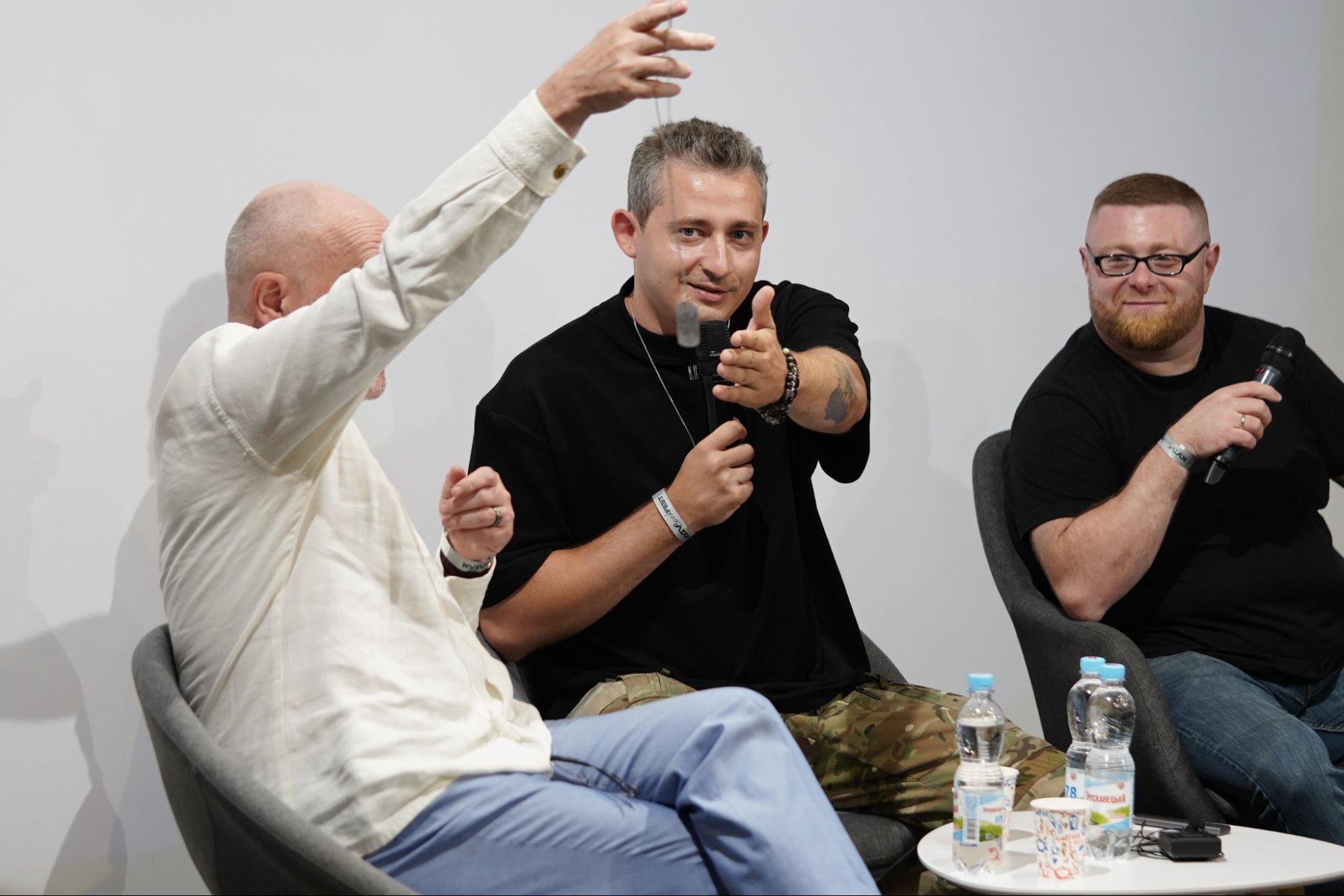
Kolia Sierga speaks about Cultural Landing. Photo: Valentyn Kuzan
His colleague Yanevskyi is a more reserved person, so he tells his part less emotionally, gradually moving away from the topic. Sierga skilfully intervenes, speaking about the activities of Yanevskyi himself. He sums it up jokingly: "I finally understood what I was doing — I worked with emotional images of fighters."
After the speech, I asked Kolia Sierga more about the work of the Cultural Landing: "Now our goal is to popularize the Cultural Landing among those who can join and actively help. We will probably talk about the significance of the Cultural Landing as an institution later, after the war. For now, we are fulfilling our task."
Saturday evening ended with a fiery musical performance by the band OT VINTA. After a hard day's work, the team could relax with the guests.
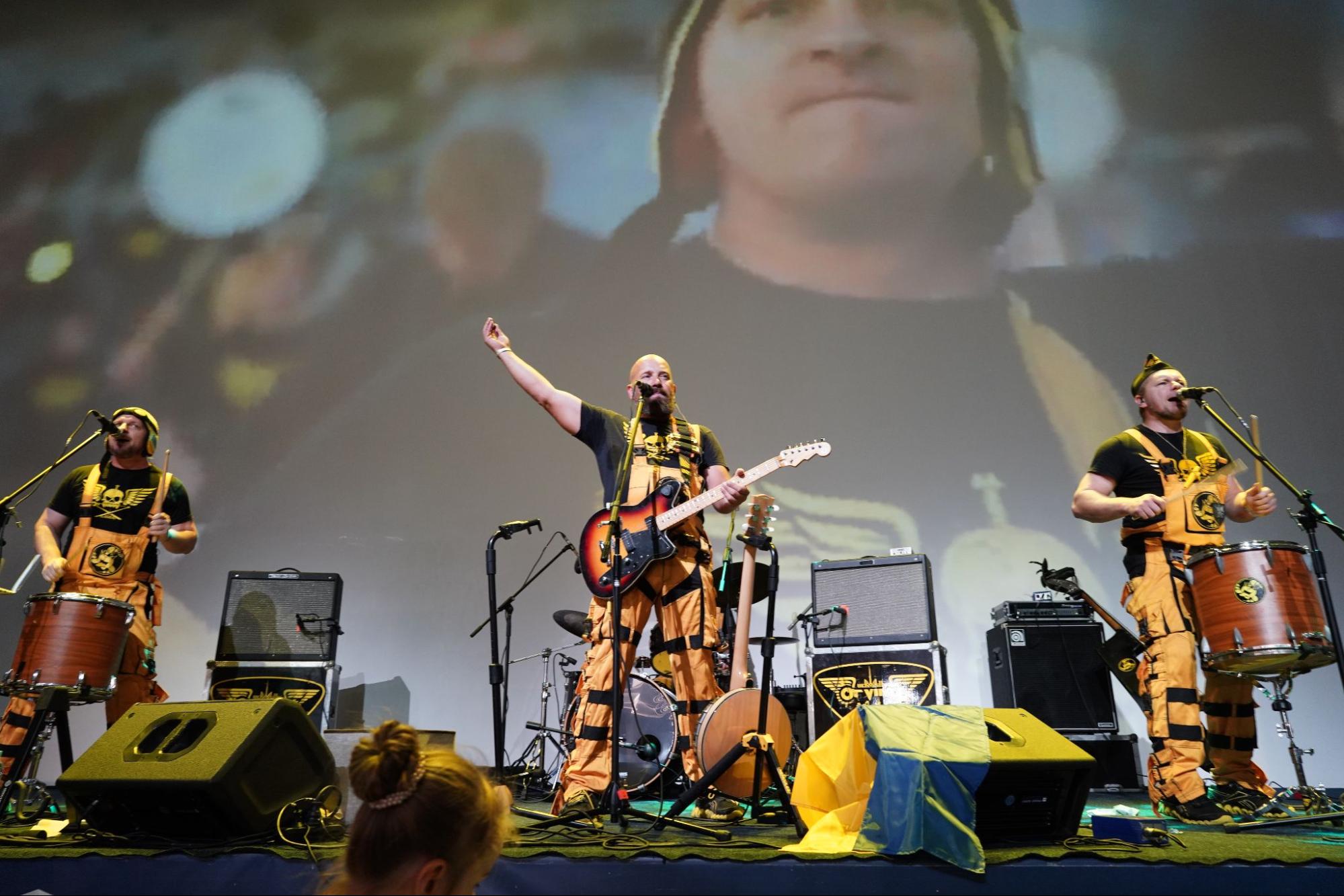
Performance of the band OT VINTA. Photo: Valentyn Kuzan
Sunday is a bright finale
The morning of the third day is the hardest, and you feel physical fatigue. Most of the volunteers lasted two days. There are a lot of confused newcomers on Sunday. At the same time, many visitors came for the first time and were also confused due to the complex locations of the area.

A team of volunteers. Photo: Valentyn Kuzan
My first event at A2 is about quality books on economics presented by the co-owner of Nova Poshta, Volodymyr Popereshnyuk, and the owner of the WellBooks publishing house, Mykhailo Chernyshev. Among the audience are mostly businessmen, for example, the owner of the Ranok publishing house. A conversation resembles a discussion between speakers and listeners.
A little later, all the excitement from stage A2 moved to B2, where psychologist Ilya Poludyony performed. Out of curiosity, I look into the auditorium — all seats are occupied, and visitors are sitting on the floor. The psychologist successfully communicates with the audience and speaks about how different generations have different traumas.
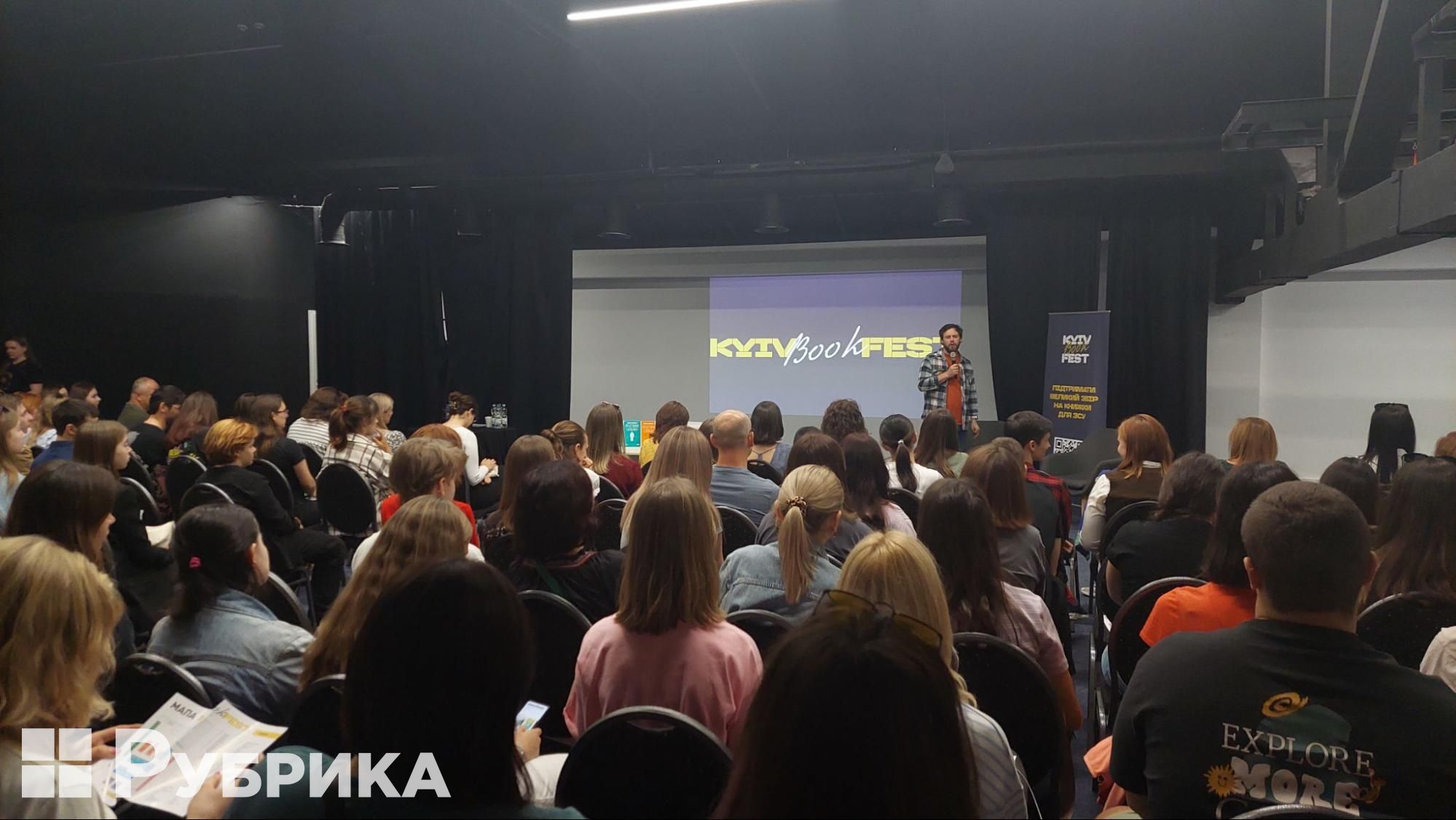
A full hall with Ilya Poludyonyi. Photo: Sofia Korotunenko
I don't stay long becase I have to return ten minutes before the next event and very persistently ask the storytellers to vacate the stage. Speakers usually get a lot of questions from the audience and want to answer all of them, but there is a set time for each event, and the volunteer's task is to ensure that everyone keeps to it.
The most popular Sunday lecture on my stage is "How are you? Unobvious ways of caring for mental health," with medical journalist Darka Ozerna as the speaker. There are not enough chairs for the audience, and many are standing. Many Ukrainians suffered from the war not only physically and materially but also mentally. It is important for them to discuss their condition.
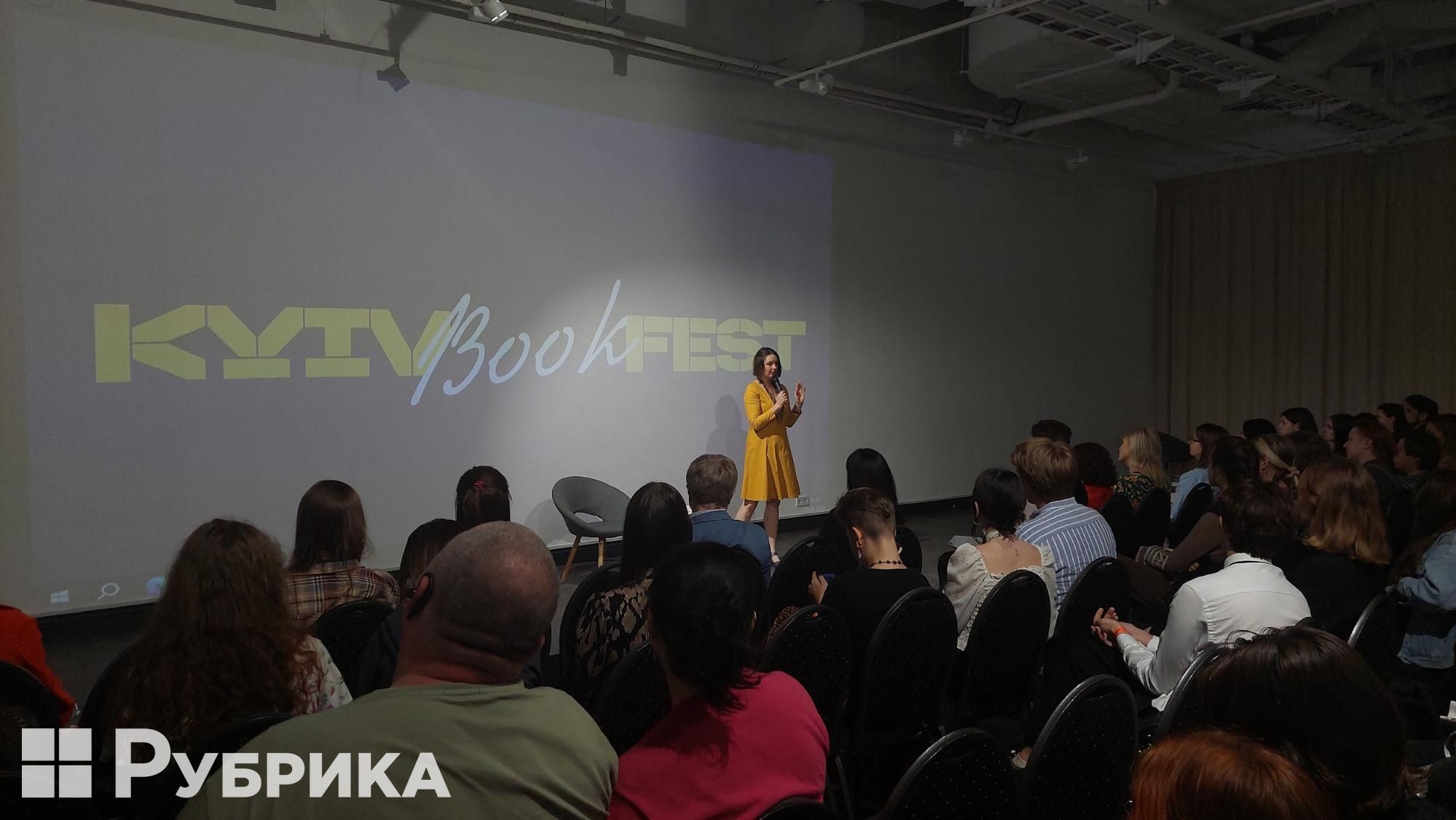
Lecture "How are you?". Photo: Sofia Korotunenko
"After the lecture, where I asked my questions, other listeners approached me and advised me what worked for them. We talked, and I felt better," shares visitor Olena Dryga.
The evening finished with the thanks of the festival organizer to the team, including volunteers, speakers, and guests who came. The organizers called for donations once again, displaying a link on the screen. The festival ended with a musical performance by Oleksandr Polozhynskyi, and the guests enjoyed the last event of the festival.

Closing ceremony of the festival. Photo: Valentyn Kuzan
KyivBookFest was a unique and unforgettable experience for the team. In such events, energy is vital, both on the part of the organizers and the participants and visitors. Here, everything turned out well! The organizers tried incredibly hard, the participants were ready for the meeting and questions, and the guest-readers reciprocated. "From the very first day, we understood that people would come to us, that the halls would be full, that they would buy books and want to communicate, not to let the authors go. It is very important when literally from Saturday morning they started asking: when is the next festival? When you hear these words, you can already say that everything happened in the best way," says event organizer Lyudmyla Fit.

Lyudmyla Fit with a visitor. Photo: Valentyn Kuzan
The festival results are already known, and KyivBookFest published them on Facebook.
In total, more than 25,000 people visited the festival. Of these, almost 5,500 attended the industry forum where discussions, presentations, and speeches occurred. The donations collected at the entrance will be used to print statutes and manuals for the Armed Forces of Ukraine. It was possible to collect ₴810,034 for this.
It is not yet known whether KyivBookFest will take place next year, but considering the positive reviews of the organizers, participants, and guests, it's very possible that the festival will happen again next year.
Author: Sophia Korotunenko
Newsletter
Digest of the most interesting news: just about the main thing


